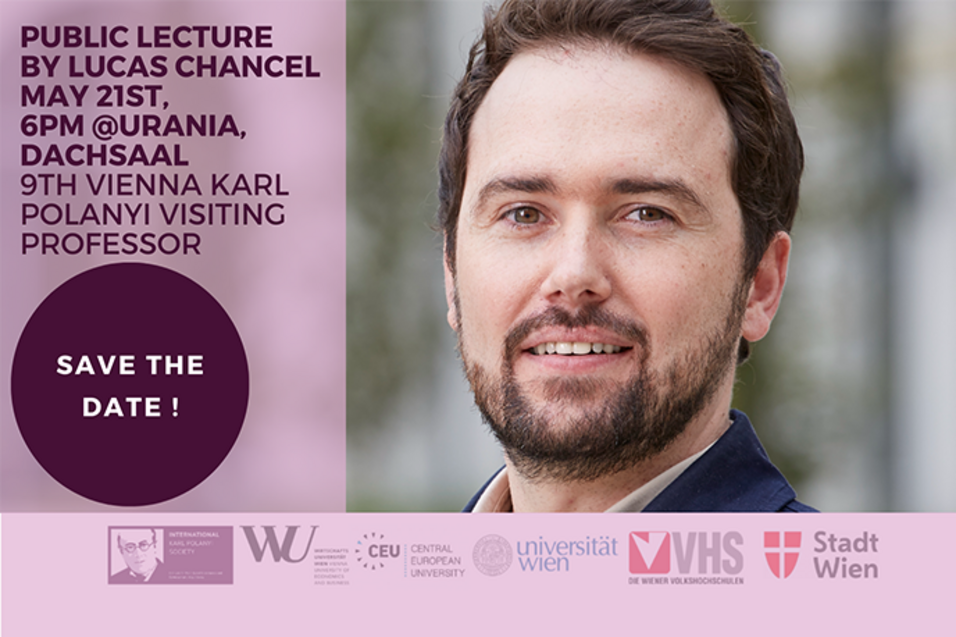As the ninth Vienna Karl Polanyi Visiting Professor for the summer term 2025, Lucas Chancel will hold a public lecture on May 21 titled “Energy, Inequality and Democracy”.
Lucas Chancel is Co-Director of the World Inequality Lab at the Paris School of Economics and Senior Adviser at the European Tax Observatory. He is a tenured Associate Professor of Economics at Sciences Po, affiliated with the Center for Research on Social Inequalities and the Department of Economics. Chancel previously held visiting professorships at the Harvard Kennedy School and the London School of Economics.
Chancel’s work focuses on the intersection of inequality and environmental policy, and how economic and environmental inequalities reinforce each other in various ways—producing what he terms a “triple climate inequality crisis”. In his recent research, Chancel addresses one of today’s most pressing challenges: How can the costs of environmental damage and the energy transition be distributed in a way that promotes social justice?
Public Lecture
"Energy, Inequality and Democracy"
by Lucas Chancel
21.05.2025 I 18:00 - 20:00
Dachsaal, VHS Wiener Urania
Uraniastraße 1, 1010 Vienna
Who will control energy and material ressources in the future? How can ecological constraints lead to greater socioeconomic and political equality? Energy has always been at the heart of social inequalities, shaping hierarchies and power dynamics throughout history. This lecture will explore how different energy regimes - from land-based wealth in pre-industrial societies to coal and oil-driven economies - have structured social orders, fueled conflicts over wealth distribution, and shaped political decisions about ownership and governance. Drawing on insights from economic history and environmental sciences, past efforts to democratize energy systems will be examined and how these lessons can inform todays debates on ecological transition. Challenging the idea that energy history is purely technical or politically predetermined, this talk will argue that moving away from fossil fuels raises fundamental questions of power and wealth redistribution. By revisiting historical models of energy socialization in the 20th century, this lecture will advocate for a democratic energy system as essential to a future in which societies reclaim power over markets - within both the limits and possibilities of the material world.
Publications/ Readings
Climate Inequality Report 2023
The potential of wealth taxation to address the triple climate inequality crisis

